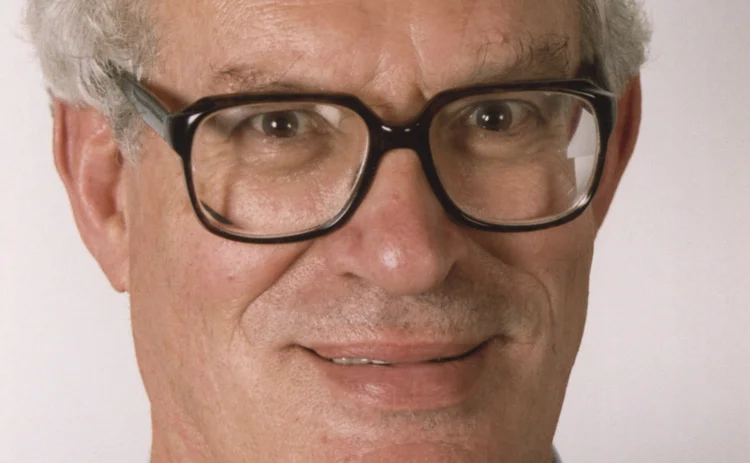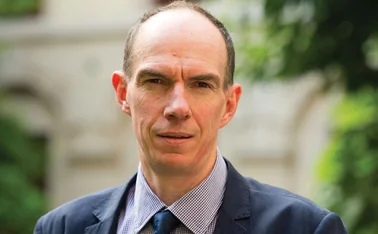
Goodhart calls for negative deposit rate

Charles Goodhart, a former member of the Bank of England's Monetary Policy Committee (MPC) and now a professor at the London School of Economics, has called on the Bank to cut its deposit rate to -0.5% to stop "socially useless" hoarding.
Goodhart said at a mock MPC organised by Fathom, a financial consultancy, on Wednesday: "Quantitative easing should have a second-round effect of making the banks a lot more liquid. But the banks are pilling up their liquidity with the central banks, both here and elsewhere. That's just socially useless hoarding."
The professor said the Bank would do well to follow the Riksbank's "superb move" of charging banks "for the privilege of holding assets with them." The Riksbank cut its deposit rate to -0.25% last month.
He proposed a cap on the amount that banks could hold at the central bank for free.
"Two percent was always the old historical cash ratio and I rather like carrying on with the old historical ways of doing things, I would say to the banks, ok you've got liquidity fears, you can have your 2% of assets held here," Goodhart said. "But anything over 2%, I would charge them 0.5% and encourage them to go out and buy short-dated gilts or short-dated commercial paper with the money." Goodhart acknowledged that this would have little more than a negligible impact on liquidity but said it was at least socially useful.
The MPC votes on Thursday and is widely tipped to halt its quantitative-easing programme at £125 billion ($213 billion).
Sushil Wadhwani, another former member of the MPC present at the meeting, said the Bank would be right to keep quantitative easing on hold.
Wadhwani believed the Bank would do best to keep its programme on hold to temper "irrational fears" among market participants that quantitative easing would stoke inflation. Otherwise, the Bank ran the risk of having to raise rates prematurely early next year in order to soothe market sentiment. "If you have a pause in quantitative easing you don't fan the flames of irrational fear. And when economic activity falls in 2010, you can start to have a rethink about quantitative easing as market fears turn towards deflation."
He later added that implicit in his view was a lack of faith by market participants in the central bank's monetary independence.
However, Goodhart urged the Bank to push on, releasing another £50 billion to fund purchases over the next three months. "Why not? If something is wrong, you can reverse quantitative easing very quickly," he said, later adding that he was "confused" by the view of Charlie Bean, the Bank's deputy governor for monetary policy, that the programme would work with a nine-month lag.
Goodhart dismissed concerns that money supply gauges showed quantitative easing wasn't working, saying: "The question is what would have happened if quantitative easing wasn't there?" He added that he would look to figures on loan growth rates between large companies and small companies if he was still at the Bank, suggesting that these would show the proportion of loans to small business rising as large companies delevered.
The audience of about 100 - which included representatives from the Bank of England and various think tanks, City of London economists and journalists - was marginally in favour of the Bank extending the programme rather than keep it on hold. Very few backed a reversal. When asked whether inflation or deflation was the greatest fear, the audience was split almost exactly.
Wadhwani forecast relatively strong growth in the coming quarters but said this would be followed by a second dip and that the global economy will see a series of mini cycles in the years ahead. "We have enormous medium-term problems, but we will have a short-term bounce," Wadhwani said.
Goodhart was less bullish on the months ahead, but said the second-quarter UK GDP estimate that so disappointed markets last week "wasn't worth the paper it was written on." "I'm a farmer and the second-quarter figure showed a 2% contraction for the industry when actually we had rather a good three months," Goodhart said, though he acknowledged the gloomy first-quarter figure "does mean something". He also cautioned that the housing market needed to be "watched very carefully".
Goodhart was a member of the MPC from June 1997 to May 2000. Wadhwani was a member from June 1999 until May 2002.
Only users who have a paid subscription or are part of a corporate subscription are able to print or copy content.
To access these options, along with all other subscription benefits, please contact info@centralbanking.com or view our subscription options here: http://subscriptions.centralbanking.com/subscribe
You are currently unable to print this content. Please contact info@centralbanking.com to find out more.
You are currently unable to copy this content. Please contact info@centralbanking.com to find out more.
Copyright Infopro Digital Limited. All rights reserved.
As outlined in our terms and conditions, https://www.infopro-digital.com/terms-and-conditions/subscriptions/ (point 2.4), printing is limited to a single copy.
If you would like to purchase additional rights please email info@centralbanking.com
Copyright Infopro Digital Limited. All rights reserved.
You may share this content using our article tools. As outlined in our terms and conditions, https://www.infopro-digital.com/terms-and-conditions/subscriptions/ (clause 2.4), an Authorised User may only make one copy of the materials for their own personal use. You must also comply with the restrictions in clause 2.5.
If you would like to purchase additional rights please email info@centralbanking.com







